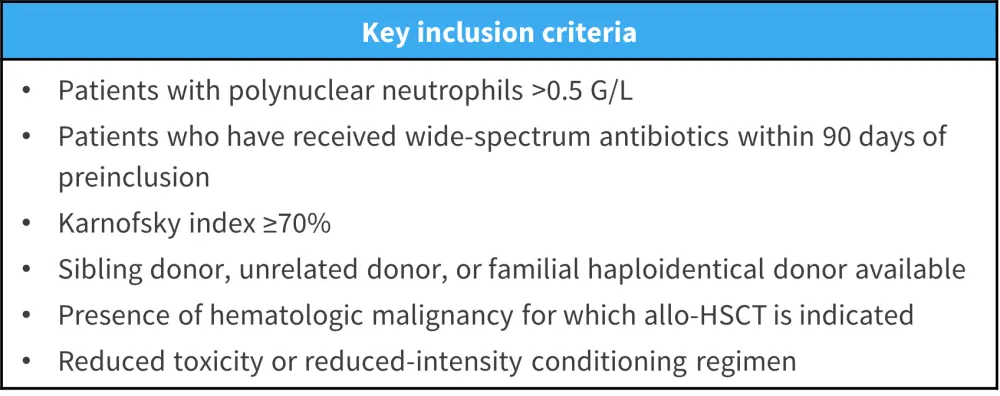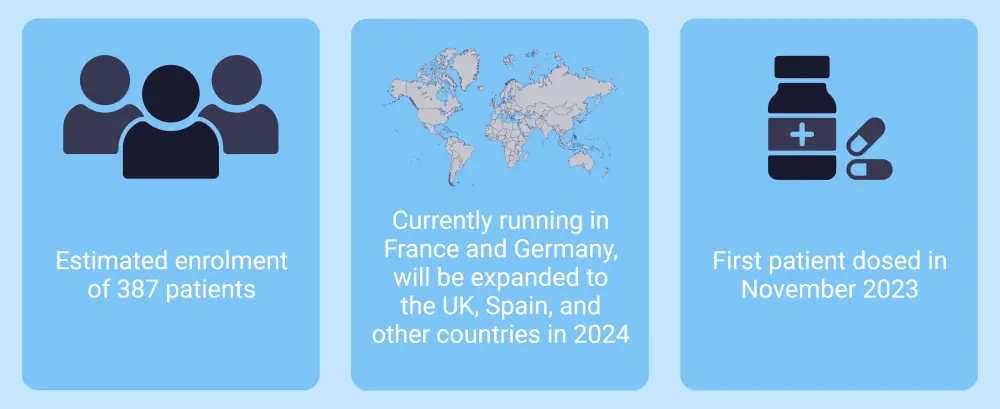All content on this site is intended for healthcare professionals only. By acknowledging this message and accessing the information on this website you are confirming that you are a Healthcare Professional.
The gvhd Hub website uses a third-party service provided by Google that dynamically translates web content. Translations are machine generated, so may not be an exact or complete translation, and the gvhd Hub cannot guarantee the accuracy of translated content. The gvhd and its employees will not be liable for any direct, indirect, or consequential damages (even if foreseeable) resulting from use of the Google Translate feature. For further support with Google Translate, visit Google Translate Help.
The GvHD Hub is an independent medical education platform, sponsored by Medac and supported through grants from Sanofi and Therakos. Funders are allowed no direct influence on our content. The levels of sponsorship listed are reflective of the amount of funding given. View funders.
Now you can support HCPs in making informed decisions for their patients
Your contribution helps us continuously deliver expertly curated content to HCPs worldwide. You will also have the opportunity to make a content suggestion for consideration and receive updates on the impact contributions are making to our content.
Find out more
Create an account and access these new features:
Bookmark content to read later
Select your specific areas of interest
View GvHD content recommended for you
Study design of the phase II PHOEBUS trial of MaaT013
MaaT033 is a fecal microbiota product produced from pooled allogeneic human material. The GvHD Hub has previously reported on MaaT013 for gastrointestinal and steroid-refractory graft-versus-host disease. Previous studies have suggested that use of fecal microbiota therapy could improve outcomes, such as overall survival after an allogeneic hematopoietic stem cell transplant.1
At the 65th American Society of Hematology (ASH) Annual Meeting and Exposition, Florent Malard presented the planned study design and methods of the phase II PHOEBUS trial (NCT05762211) of MaaT013 in patients ≥50 years with hematologic malignancies undergoing allogeneic hematopoietic stem cell transplant.
Inclusion criteria1
Figure 1 outlines the key inclusion criteria of the PHOEBUS trial.
Figure 1. Key inclusion criteria

Study design1
- The primary objective is overall survival at 12 months
- Secondary objectives include quality of life, safety, and incidence of graft-versus-host disease
- Patients will receive three MaaT013 or placebo capsules per day for 7 days before initiation of the conditioning regimen (between Day −21 and Day −7)
- Patients will have monthly follow-ups until Month 6, and then every 3 months until Month 12
Key facts1
Figure 2. Key facts about the PHOEBUS trial*

*Data from Malard.1 Created with BioRender.com
This trial is still ongoing and the first results are expected later in 2024.
References
Please indicate your level of agreement with the following statements:
The content was clear and easy to understand
The content addressed the learning objectives
The content was relevant to my practice
I will change my clinical practice as a result of this content
Your opinion matters
Which consideration most strongly guides your decision to escalate therapy in SR-aGvHD?




